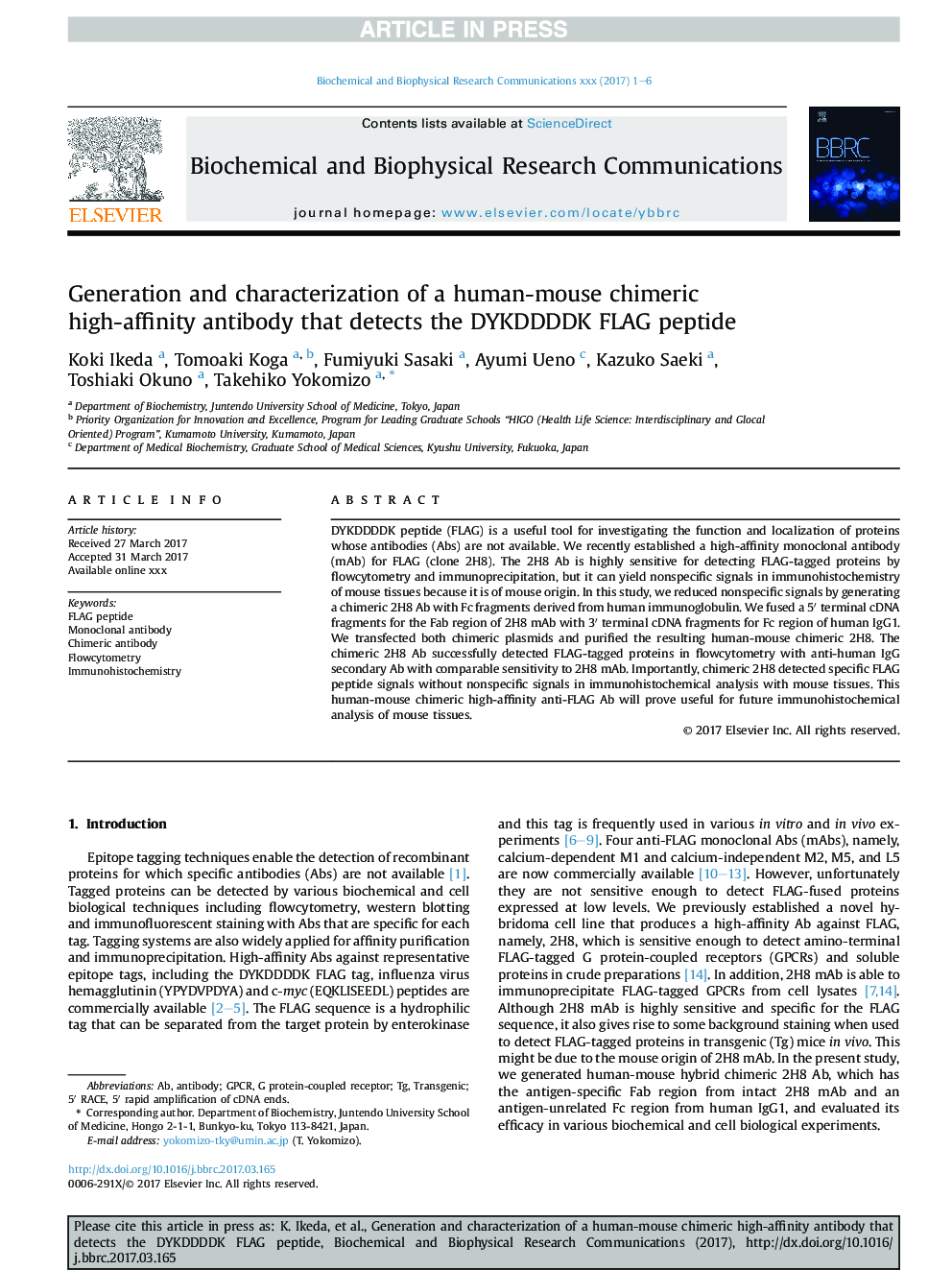| Article ID | Journal | Published Year | Pages | File Type |
|---|---|---|---|---|
| 5505951 | Biochemical and Biophysical Research Communications | 2017 | 6 Pages |
Abstract
DYKDDDDK peptide (FLAG) is a useful tool for investigating the function and localization of proteins whose antibodies (Abs) are not available. We recently established a high-affinity monoclonal antibody (mAb) for FLAG (clone 2H8). The 2H8 Ab is highly sensitive for detecting FLAG-tagged proteins by flowcytometry and immunoprecipitation, but it can yield nonspecific signals in immunohistochemistry of mouse tissues because it is of mouse origin. In this study, we reduced nonspecific signals by generating a chimeric 2H8 Ab with Fc fragments derived from human immunoglobulin. We fused a 5â² terminal cDNA fragments for the Fab region of 2H8 mAb with 3â² terminal cDNA fragments for Fc region of human IgG1. We transfected both chimeric plasmids and purified the resulting human-mouse chimeric 2H8. The chimeric 2H8 Ab successfully detected FLAG-tagged proteins in flowcytometry with anti-human IgG secondary Ab with comparable sensitivity to 2H8 mAb. Importantly, chimeric 2H8 detected specific FLAG peptide signals without nonspecific signals in immunohistochemical analysis with mouse tissues. This human-mouse chimeric high-affinity anti-FLAG Ab will prove useful for future immunohistochemical analysis of mouse tissues.
Keywords
Related Topics
Life Sciences
Biochemistry, Genetics and Molecular Biology
Biochemistry
Authors
Koki Ikeda, Tomoaki Koga, Fumiyuki Sasaki, Ayumi Ueno, Kazuko Saeki, Toshiaki Okuno, Takehiko Yokomizo,
